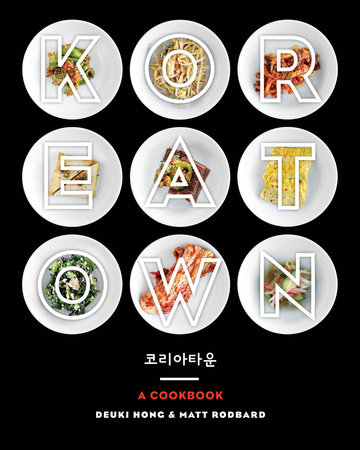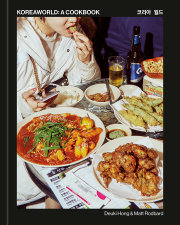Our Mildly Insane Kimchi Bokkeumbap 김치볶음밥
KIMCHI FRIED RICE Bacon. We kept coming back to bacon when talking about this kimchi fried-rice recipe. Bacon is quintessential Americana. Our kimchi fried rice needed bacon, and for months we tested and were continually disappointed that the essence of bacon—Americana!—was being muted by either too much rice or too much kimchi. Then it came to us. We needed to use more bacon! Like a lot more. Like how French chefs view mashed potatoes: equal parts butter and potatoes. That’s scary, right? Also scary good.
We went that direction here and by the grace of god and Allan Benton did this ever work. The crispy rice unites with the decadent gochujang butter, while the bacon is there just being wonderful. And remember, the key to good fried rice is using cold day-old rice, which is nice and dried out and gives you a much better fry. So the next time you order takeout, get an extra order of rice and keep it in the fridge for a day or so. And if you didn’t plan ahead, no sweat. Make some rice and lay it out on a sheet tray and freeze until cold.
SERVES 2
½ pound of slab bacon, roughly chopped
1 medium onion, cut into small dice
2 garlic cloves, minced
1-inch knob of ginger, minced
1½ cups chopped extraaged
Napa Cabbage Kimchi (recipe below)
2 cups cooked rice, preferably day-old
1 tablespoon gochujang
2 tablespoons butter, softened
2 eggs, fried sunnyside up
2 scallions, sliced thin
1. In a large skillet, wok or cast-iron pan over high heat, cook the bacon, stirring, until fat is fully rendered and the bacon is barely starting to crisp. Pour out all but 2 tablespoons fat.
2. Add onion, garlic and ginger and sauté for 1 minute, or until very aromatic. Add chopped kimchi and rice and sauté, stirring frequently, for 4 to 5 minutes, or until very hot. Drop the heat to medium-low and flatten the rice with your spatula. Continue to cook until the bottom layer is crispy, about 2 minutes; think Spanish paella here. The longer you leave it, the more crispy the bottom will become, but be careful not to burn the garlic.
3. While the rice continues to crisp, in a small bowl mix together the gochujang and softened butter.
4. Serve from the pan or wok, topped with fried eggs, sliced scallions and gochujang butter.
Copyright © 2016 by Deuki Hong and Matt Rodbard. All rights reserved. No part of this excerpt may be reproduced or reprinted without permission in writing from the publisher.







